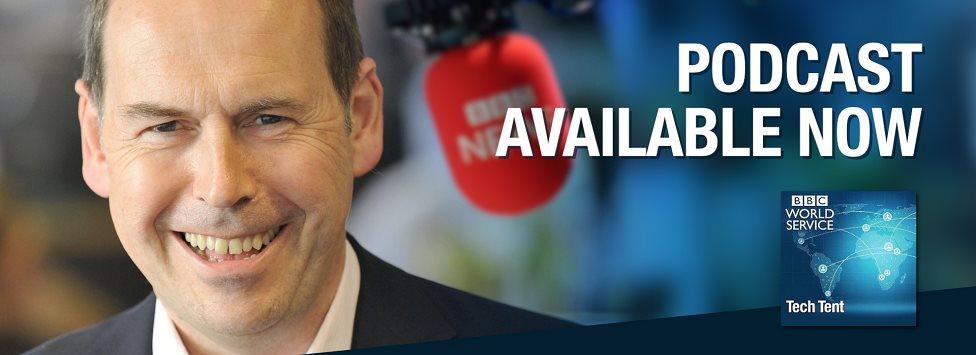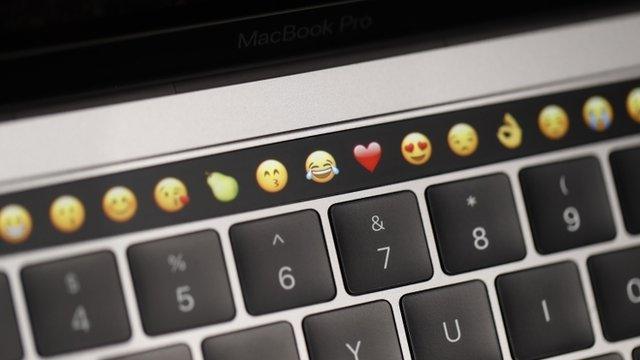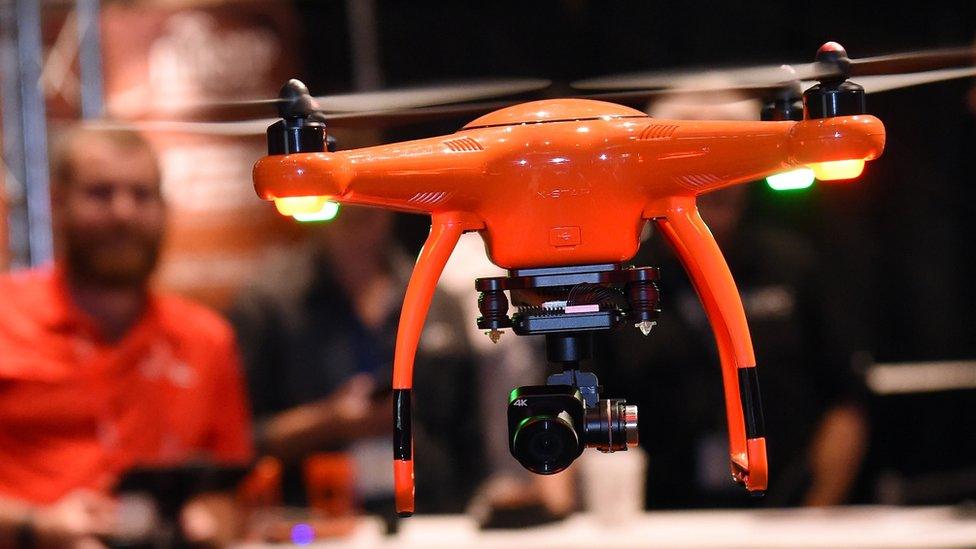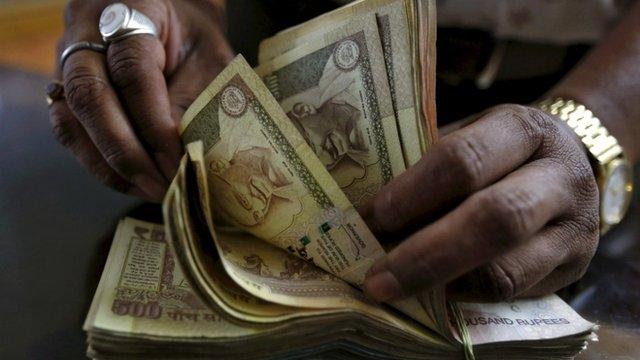Tech Tent: Cool computers, downed drones and mobile cash
- Published

Stream the latest Tech Tent episode on the BBC website
Download, external the latest episode as a podcast
Listen to previous episodes on the BBC website
Listen live every Friday at 15.00 GMT on the BBC World Service

It's been a busy week for technology news. Twitter has cut jobs and closed its Vine video app, Tesla has surprised the financial markets by making a profit from its electric cars, and we've heard that smartwatch sales aren't so great, down more than 50% on the year.
On Friday's Tech Tent podcast - your weekly status update on the technology business - we'll concentrate on these three stories.
Mac v PC - the battle resumes

The Touch Bar on the MacBook Pro has divided commentators
We have seen two glossy computing launches this week, which have seen an old rivalry reignited. On Wednesday, Microsoft unveiled a raft of new products, including some Windows-powered virtual reality headsets.
But what wowed the audience both at the event and online was the Surface Studio, a giant touchscreen desktop computer with some very cool features.
The following day it was Apple's turn, with the unveiling of its new MacBook Pro. Instead of a touchscreen the new laptop has a Touch Bar, a control strip that adapts to whatever program you're using. This too looked cool - although the prices Apple now charges for its computers raised eyebrows, particularly in the UK where they have been raised to reflect the fall in the pound.
Until recently, the question of who was cool in computing seemed easy to answer - Apple was the choice across the creative industries. But we will be discussing whether that is changing, and whether Microsoft is now showing that it is the more innovative business.
Sweden bans camera drones

Industry group UAS Sweden said that the ruling requiring camera drones owners to have a surveillance licence was a "bad decision"
In what is the latest backlash against those sometimes annoying aerial playthings, Sweden's Supreme Administrative Court has ruled that drones with cameras amount to surveillance devices.
That, according to Johan Lindqvist, is "devastating" and will effectively mean that most drone activity is forbidden. Johan, who helps to run the trade association for Swedish drone users, tell us that his country is the world leader in using the technology in all sorts of areas.
We will discuss whether there are legitimate privacy concerns about drones hovering over people without their permission - or whether Sweden has gone too far.
Mobile money's Indian growing pains

India is still a country driven by cash
India is embracing mobile technology at breakneck speed - Apple's Tim Cook was keen to stress this week that the country was now a major market for the future of the iPhone. But mobile payments, which have taken off in a number of African countries, are yet to prove very popular in India.
Our reporter Rahul Tandon has been out on the streets of Kolkata trying out mobile money - and finding that most people do not trust it.
"It's not that safe, it's not that secure, what will happen to our money?" one man tells him.
One reason is that in a country where many people still prefer to pay in cash, and the underground economy is substantial, any digital form of payment will be avoided by people who don't want to be tracked.
Another is the challenge of connectivity - no point in reaching for your phone to pay if you can't even get a signal. India's banking industry is spending freely to market mobile payments and there has been a surge in the number of small businesses making mobile transactions. But persuading consumers to reach for their phones to pay may take a little longer.